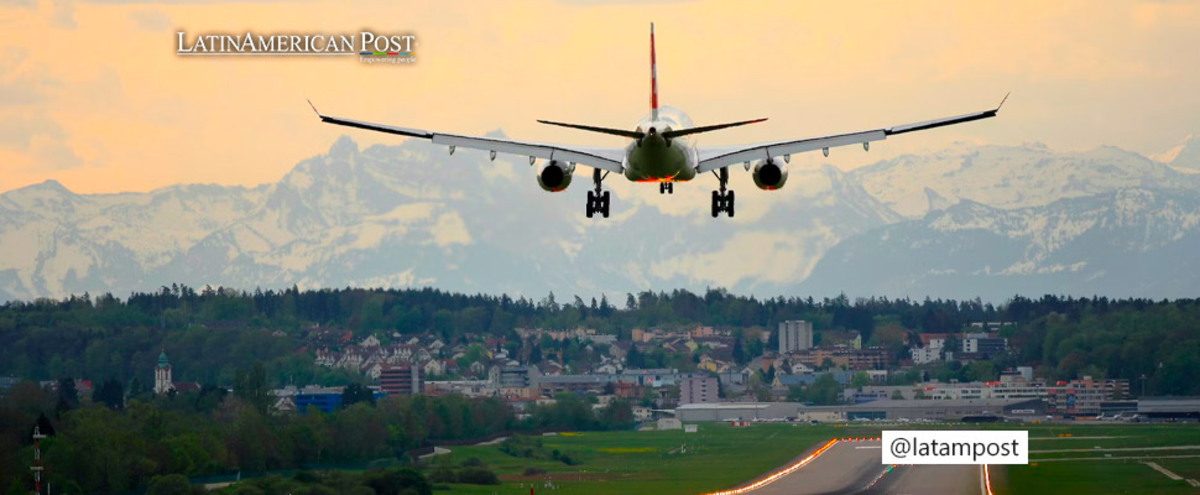El Salvador’s New Airport Fee Amid Migration Control Efforts
El Salvador introduced a $1,130 fee for travelers from 57 countries, coinciding with U.S. pressure to manage migration flows through Central America.

Photo: Unsplash
The Latin American Post Staff
Escucha este artículo
Leer en español: Nueva tarifa aeroportuaria de El Salvador en medio de esfuerzos de control migratorio
El Salvador has recently implemented a significant policy shift at its main airport, introducing a substantial fee for travelers from dozens of countries, predominantly in Africa and India. Since the end of October, these travelers have been required to pay a cost of $1,130, a move that aligns with increasing U.S. pressure on Central American countries to regulate migration flows to its southern border.
Unveiling the "Airport Improvement Fee
This new fee, instituted by El Salvador's aviation authority, has raised questions about its intent and timing. While aviation officials have labeled it an "airport improvement fee," the measure coincides with a notable rise in travelers from the affected countries to El Salvador this year. Moreover, the U.S. has been actively urging Central American nations to take steps to curb migration, especially in light of U.S. authorities stopping migrants over 2 million times at the Mexico border in the fiscal year ending September 30.
Most passengers affected by this new tariff are believed to be in transit to Nicaragua via Avianca, a commercial airline. Nicaragua has become a critical transit point for migrants from Haiti, Cuba, and various African nations, primarily due to its relaxed visa requirements. These migrants are often on journeys to reach the United States.
Earlier in the year, U.S. officials observed an unexpected increase in Mauritanian migrants at the southern border. This surge was not attributed to any natural disaster or economic collapse but to travel agencies and social media influencers promoting a multi-leg journey that included Nicaragua as a critical stopover.
The journey of one Senegalese migrant, as reported by The Associated Press, involved transiting through Morocco, Spain, and El Salvador before arriving in Managua, with the last two segments on Avianca flights. This example underscores the complex routes migrants take to reach the U.S.
Data Gap and Speculation
El Salvador's aviation authority and immigration agency, however, have not provided specific data on the number of migrants from the listed countries who have transited through the country this year. This lack of data has fueled speculation about the real intent behind the hefty fee and its effectiveness in deterring migration.
The introduction of this fee is subject to controversy. It raises critical questions about the balance between a nation's right to control its borders and migration policies and the potential impact on legitimate travelers, including tourists and business people from the affected countries. The significant amount of the fee also suggests that it could disproportionately affect less affluent travelers, potentially limiting their ability to transit through El Salvador.
Also read: El Salvador's Tribunal Clears Bukele for Reelection
Broader Dynamics of Migration
Moreover, this measure reflects the broader dynamics of migration in the Central American region and the increasing involvement of the U.S. in influencing the migration policies of its neighbors. The U.S.'s vested interest in controlling migration flows has led to various strategies, from direct financial aid to indirect measures like this recent fee imposed by El Salvador.
In conclusion, El Salvador's implementation of a substantial fee for travelers from certain countries at its primary airport is a complex issue at the intersection of national sovereignty, international migration trends, and U.S. foreign policy. While the intent behind this fee is framed as part of airport improvements, its timing and the specific countries targeted suggest a deeper connection to migration control efforts. This policy raises important questions about the efficacy and ethics of such measures and their impact on international travel and migration. As global migration continues to be a topic of intense discussion and varying policies, the repercussions of El Salvador's decision will be closely watched and debated.





